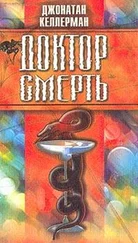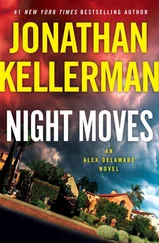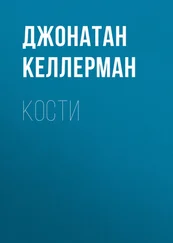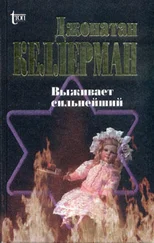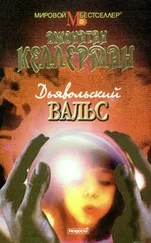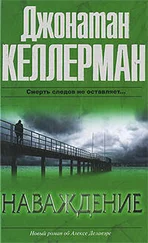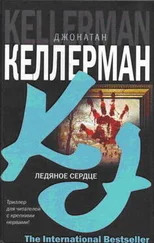Bet looks like a bayit , a house.
Yod is a hand raised up in the air.
Nun makes a nose.
Hay , a little man hides inside.
Writing her own name brought her unexpected pleasure, and by spring she was devoting as much energy to learning Hebrew as she was to her coursework.
On days when she’d had enough book learning, she and Frayda would take walks around the Lower East Side, dissecting their dreams, talking anthropologically about boys. Or they simply sat in the kitchen, Barbara eating cookies, reveling in the presence of people who — gasp — talked! And smiled! Wanting badly to feel like she could give something in return, she loaned Frayda copies of her favorite books.
An inky, creased edition of Kafka’s Metamorphosis .
The Bell Jar , bristling with dog-ears.
Should I be worried? Frayda asked.
Happiness snuck up on her. Barbara had never doubted the correctness of the school-work-job-money-safety equation. She’d never felt anything missing from her life. Certainly she didn’t see herself on a spiritual quest.
The Gonshors gave her permission to want joy, instead of merely avoiding pain.
It was as though she’d been starving without realizing it.
That evening was Passover. She sat at the Gonshors’ table and sang the Four Questions. It was a role traditionally reserved for the youngest child, and as the family rose to give her a standing ovation, she felt that she had indeed become newborn.
Now she says, “They invited me for Seder.”
When her father speaks, his voice has dropped to a low, dangerous place.
“We do not do this.”
“Speak for yourself,” Barbara says.
Her father says nothing.
“It’s my right, Taťka.”
Věra slaps her thighs and whoops. “Listen to this. She has rights.”
“I’m eighteen in a month,” Barbara says. “So, actually, I do.”
“Oh, very good. What a big girl you are. What a grown-up woman .”
“I don’t get what the big deal is.”
“You will go to your room,” Věra says.
“You’ve never given it a chance,” Barbara says. “I love Frayda’s family. I love their life. It’s beautiful.”
“We do not do this,” her father repeats. But the fight has gone out of him; he sounds mangled.
“I’m sorry if it upsets you, Taťka, but it’s what I choose.”
“I will count to ten,” Věra says.
What is she, four years old? She didn’t expect the conversation to go well and it hasn’t. They’re not even trying to understand. She may as well drop the hammer.
“I’ve changed my mind,” she says. “I’m not going to summer school. I’m going to Israel.”
She waits for the explosion that does not come. Her father has turned deep red, a thick cord pulsing in his forehead, as if his skull might cleave in two. Barbara nods at each of them and goes to her room.
The counterattack commences the next morning, Věra leading the charge.
“We forbid it.”
Barbara places her knapsack on the kitchen floor.
“You will take physics, as planned.”
Barbara slides aside the plate of toast and reaches into her knapsack for the box of matzah the Gonshors gave her. With her parents watching in stunned silence, she takes out a cracker and puts it on a napkin.
“Can you please pass the marmalade?”
Věra doesn’t know what to do; she hands Barbara the jar.
“Thank you,” Barbara says.
The scrape of the knife against the matzah is deafening.
Věra, collecting herself, says, “You will not go to see this person anymore.”
The crunch between Barbara’s teeth is even louder, bombs bursting in her head.
Jozef has his unshaven face buried in his hands and is muttering.
Barbara says, “May I please say something?”
“No,” Věra says.
“Fine.” Barbara finishes her breakfast. She stands up, kisses her father on the crown of his head, and leaves for class.
Over the ensuing month, her mother’s arguments grow progressively more desperate. Who will pay for this trip? How can Barbara live on her own? Doesn’t she read the news? Israel is a terrible, dangerous place. A war zone.
Věra seems not to appreciate that in asking these questions, she’s tacitly conceding that the decision is not hers.
“It’s a women’s seminary,” Barbara says. “Frayda’s uncle is the rabbi, and he’s giving me a scholarship.”
“Scholarship...”
“It’s only for the summer, Máma.”
“Plenty of time for you to get blowed up.”
“It’s in a very safe part of the city.”
“There is no safe part.”
“It’s safer than Brooklyn,” Barbara says. “There’s no street crime. People don’t lock their front doors.”
“Yes, it is perfect.” Věra looks ready to spit. “And how do you know so much?”
“Frayda told me.”
“Ah, I forgot, Frayda . Frayda knows everything.”
“She wouldn’t bring me with her if she felt it was dangerous.”
“Wonderful, she’s going, too.”
“What’s that supposed to mean?”
“It means this person, she’s making you crazy.”
You’re making me crazy. “We’re going to be study partners.”
“You have enough to study.”
“This is important to me.”
“What? What is so important?”
“My heritage. My—”
“Dej mi pokoj.”
“Stop it, Máma.”
“You never cared about this before.”
“Because I never knew about it. I’m completely ignorant. That’s the point.”
“You will fall behind.”
“I have more than enough credits. I could graduate next fall, if I wanted.”
“Then do that,” Věra pleads. “Finish your classes, and then we discuss it.”
“I need a break, Máma.”
“From what .”
“From school. From everything.”
The implicit coda — from you — hangs.
Věra says, “You will break your father’s heart.”
“Will you please, please stop being so melodramatic. I’m not dying. I’m going away for the summer. Most normal kids start doing that when they’re six.”
Věra raises a triumphant finger. “You are not six.”
“Uuucc chh . You are missing the p—”
“You are not normal.”
“Gee, thanks.”
“You are special,” Věra says. “You are our daughter, our only daughter.”
“And I still will be in September. I’ll just have a tan.”
Věra says nothing.
“I’m happy,” Barbara says. “I wish you could be happy for me.”
An endless silence.
Věra says, “I will talk to him.”
“Thank you, Máma.”
“You must be very careful.”
“Of course I will.”
“You must write.”
“Every day.”
Věra says, “Don’t make promises.”
Whatever Věra says or does not say to Jozef makes not the slightest difference. In the weeks leading up to Barbara’s departure, he refuses to speak to her. If she enters the room, he gets up and leaves; if she tries to catch his eye, he shows her his back.
She tells herself that he’ll calm down eventually. But as the cabbie loads her suitcase, her mother comes downstairs and shakes her head.
Barbara raises her face to the sixth-floor window. Maybe he’s watching.
She says, “Tell him I love him.”
She looks at her mother. “Will you tell him?”
“He knows.”
“Tell him again,” Barbara says. “Just in case.”
They embrace.
“Please don’t cry, Máma. I’ll be back in ten weeks.”
Věra wipes her face and smiles, her cheer brittle and false and fearful.
Читать дальше

